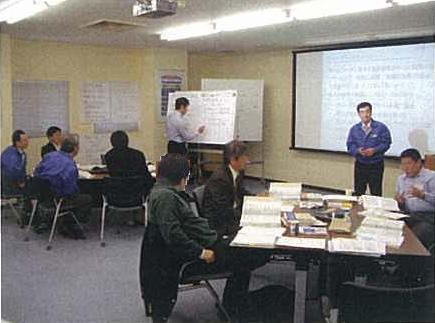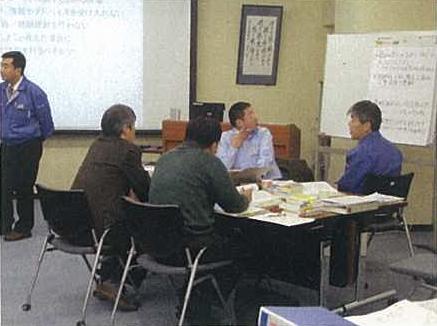|
丂丂With
outsourcing from Japan Nuclear Technology Institute (JANTI) and continued support
from individual utilities, development of a program entitled, 乬Operator
Teamwork Development Seminar乭 was carried out and a pilot class took place at
BTC over a three day period from March 3rd to 5th, 2009. Mock participants as well as observers were
provided by individual utilities.
丂丂The program title 乬Operator Teamwork Development Seminar乭 may give the
impression that the program was designed for operation shift teams. However,
we developed two separate programs this time, based upon the following
two job positions and roles:
1) Senior Class Operators
(Shift Managers, Control Room Supervisors) : Effective Management
2) Middle
Class Operators (Operators who share the part of supervisory roles) : Demonstration
of Leadership
丂丂This development is based on expert analysis that states 乬in order to
improve operator teamwork, it is especially important that individuals
in these two job positions fulfill their respective roles as managers and
leaders.乭
丂丂The design and development of the program was based on the SAT (Systematic
Approach to Training) process, and each program is structured to include
the following topics:
1) A seminar for Senior Class Operators (Phase 1) : professionalism in
operation, team management, conflict resolution, and coaching skills
2) A seminar for Middle Class Operators : leadership, communication, team
building, conflict resolution, and stress management
丂丂Each of these topics differs from the knowledge and technical skills
training that BTC has been doing up until this point in that the contents
pertain to so-called 乬soft skills.乭 Prior to this current development and per the support of the World
Association of Nuclear Operators (WANO), we had a chance to attend similar programs
with titles such as 乬Leadership Seminars乭 and 乬Professional Development Seminars乭
which were developed and provided to the
managements of utilities by the Institute of
Nuclear Power Operations (INPO) in the USA. We also had
a chance to attend similar programs provided by Ontario Power Generation (OPG)
in Canada.
丂丂In Japan, there are training programs of this type which are not necessarily
job specific, have only a general content, and are carried
out by respective utilities at certain times such as when employees receive job
promotions. However, participants have
expressed difficulty in applying the lessons learned from these programs to
their specific job duties. For this
reason, we intentionally designed programs that limit participation
to 乬operators乭 and that have contents which suit the duties
of operators. By adopting this concept,
|

